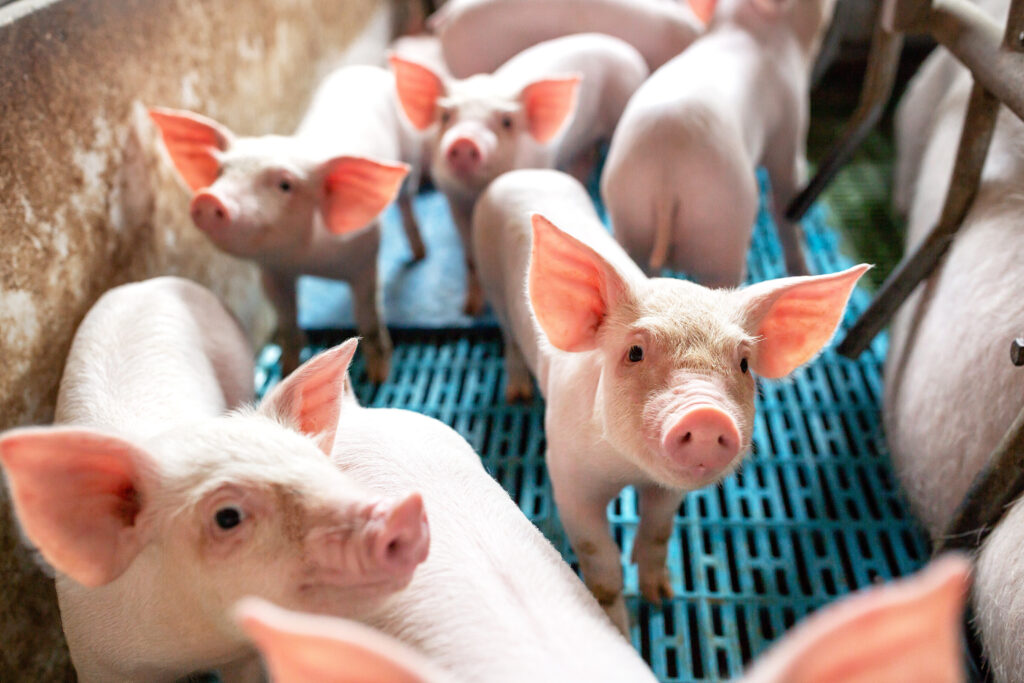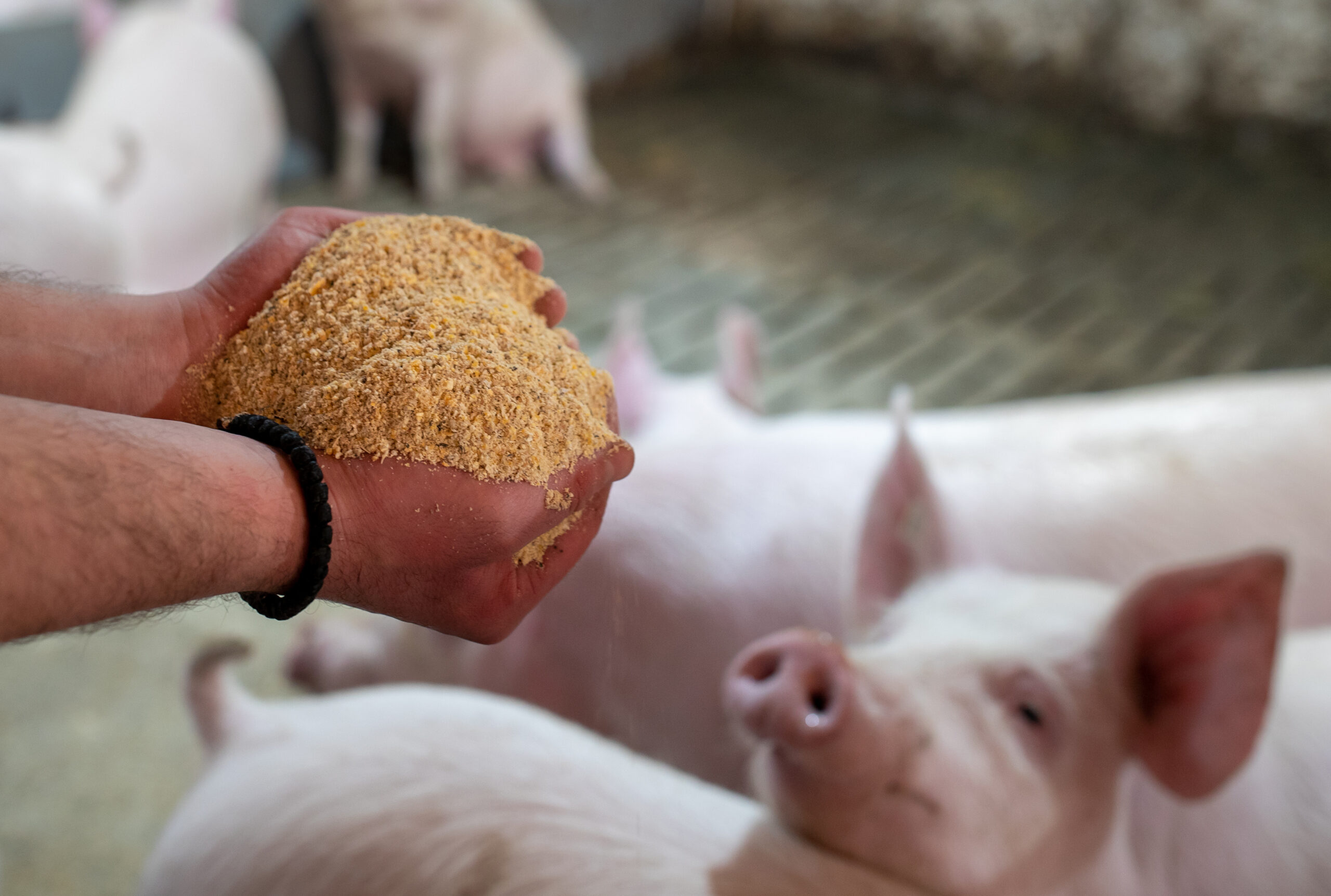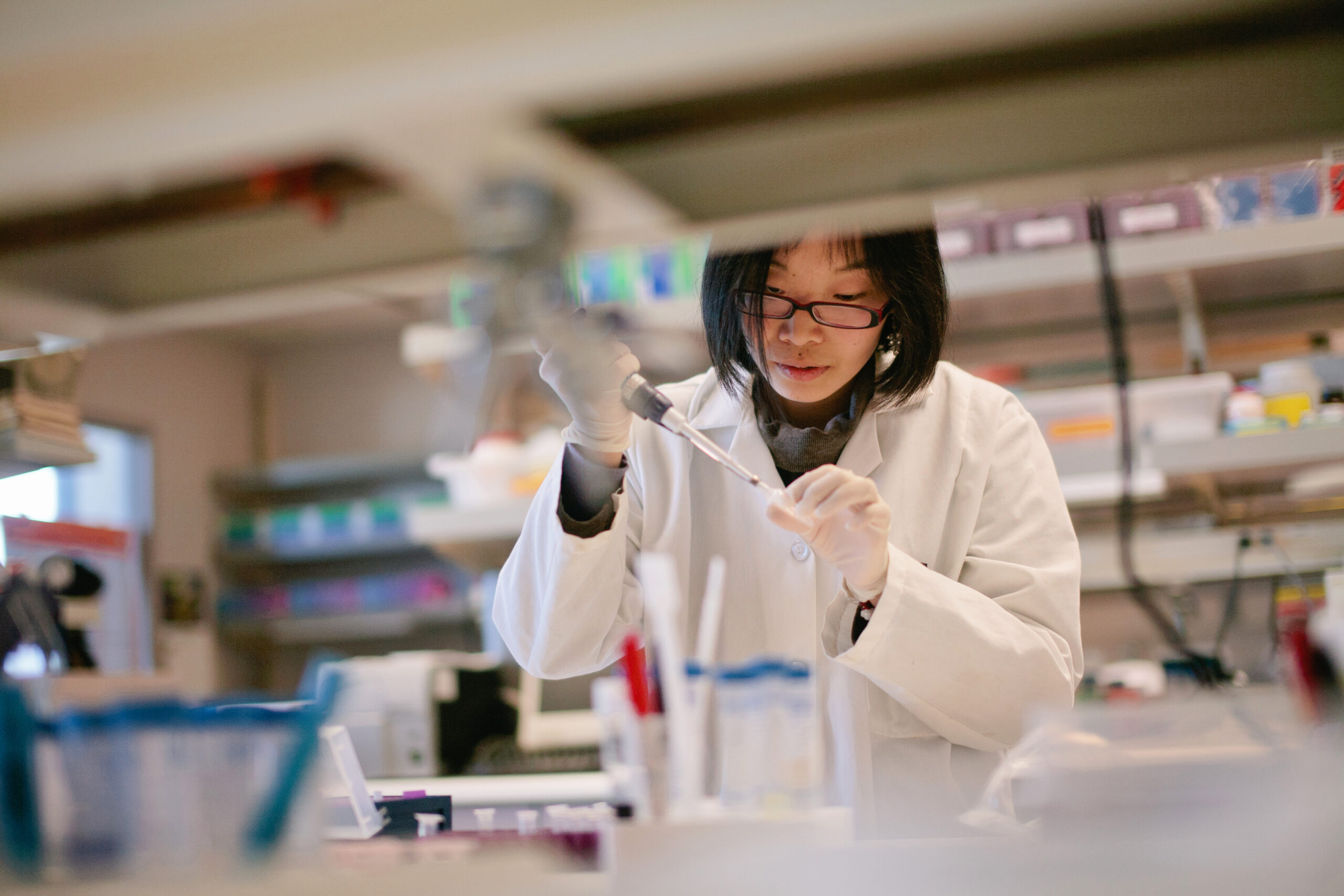Swine Health and Production Medicine
We educate new generations of experts in the field of food animal health and epidemiology and develop solutions that reduce the health and economic risks of animal-transmitted diseases.
North Carolina is the No. 2 swine-production state in the U.S., making the need for specialists in this field an important part of veterinary services in the state. Experts in swine health and production medicine work to prevent the onset of disease or parasites in swine populations. They are trained to recognize the presence of disease or parasites at early stages and to treat any instances of disease or parasites in the population.
NC State Veterinary Swine Health & Production Medicine faculty and staff are actively engaged with the North Carolina swine industry through research and outreach and are committed to training future veterinarians to serve the industry and private clients. We provide undergraduate, veterinary, and postgraduate instruction in swine health. Faculty members are also actively engaged in the international swine industry, including a training program for international veterinarians who desire to learn more about large scale swine production in order to improve the health of swine in their countries.
The Swine Unit at CVM

Education
Veterinary Swine Health and Production Medicine faculty provide direct instruction to DVM students and graduate students. Faculty members also mentor students through summer research projects and experiences in research laboratories. They are extensively involved the Comparative Biomedical Sciences graduate program, which can also lead to a combined DVM/PhD program. Through this program, veterinary students interested in conducting swine-health-related research and becoming academic clinicians can further their expertise. Graduate students work closely with faculty who direct them in swine health studies and research including studies focused on reproductive physiology and immunology, molecular epidemiology, and gastrointestinal physiology. Additionally, swine-health faculty members are extensively involved the Food Animal Focus Area.
In addition to course work in swine health management and clinical rotations, students also have access to the CVM Teaching Animal Unit (TAU), a unique working farm where we emulate the real-life conditions of swine production. Students can round out their swine experience through swine selectives.
educational opportunities
Research
Swine Health and Production Medicine research programs deliver cutting-edge information to support the U.S. swine industry. All faculty members are engaged in research programs that are nationally and internationally recognized and develop strong relationships with practicing swine veterinarians and management within the industry in North Carolina.
Faculty members focus primarily in the following areas of research:
- Reproductive physiology and immunology research is aimed at investigating the influence of cytokines and the immune system on corpus luteum function in the pig.
- Molecular epidemiology is focused on understanding important multidrug resistant (MDR) food-borne pathogens at the pre-harvest and post-harvest food safety levels with the specific goal to determine the dynamics of Salmonella, Campylobacter and Clostridium in swine, retail meat and humans.
- Gastrointestinal physiology seeks to understand the pathophysiology of important enteric disease affecting swine with the ultimate goal of identifying improved prevention and therapeutic strategies to mitigate these costly diseases. Special emphasis is on stress physiology of the pig and its role in swine intestinal health and disease susceptibility.

